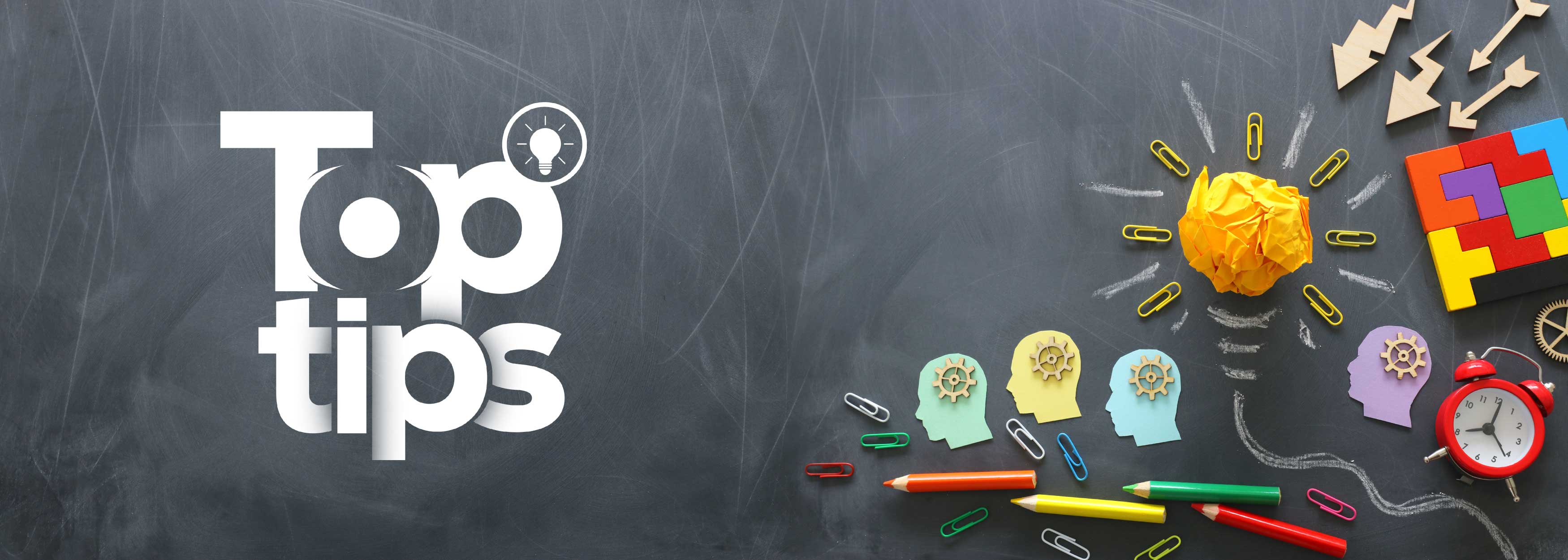Top tips: How to be a beginner again
Top tips is a weekly column where we highlight what’s trending in the tech world and list ways to explore these trends. This week, we're talking about what it really means to start fresh, stay curious, and make space to be a beginner again—even when your calendar’s packed.

If your calendar is crammed with back-to-back meetings, messages that never stop, and deadlines breathing down your neck, you're not alone. We’re all juggling so much that making it through the week sometimes feels like the biggest win. So, it's understandable that the idea of learning something new or starting something from scratch that you're not instantly good at feels exhausting.
However, whether you realize it or not, you’re always learning.
Every day. In small, invisible ways.
If you’re not giving yourself permission to be a beginner again—to try, mess up, and learn without pressure—you might be closing the door on some serious growth.
You don’t have to quit your job or find 10 free hours a week. All it takes is a little space to try, fumble, and grow.
1. Rethink what “learning” really means
Learning doesn’t have to mean textbooks, exams, or late-night study sessions. It doesn’t even need to be productive. It can look like:
A podcast during your commute (or while doing dishes).
A 10-minute YouTube tutorial during your lunch break.
Picking up something that has zero connection to your career—like painting or baking.
Even the most successful people don’t stop learning. Warren Buffett plays the ukulele. Meryl Streep knits. Sergey Brin is into gymnastics. They tried new things because curiosity doesn't disappear just because you're busy.
2. Block time for curiosity
If it’s not on your calendar, chances are it won’t happen.
We carve out time for everything else, like back-to-back calls, workouts, and errands. But how often do we block time to just… try something new?
So here’s a small idea: Block out 20 minutes a week for “beginner time.”
A study in the Harvard Business Review shows that picking up a passion outside of work can actually improve your on-the-job performance.
3. Get comfortable with not knowing
This might be the hardest part.
Most of us are used to being good at what we do. We’ve spent years building skills, learning shortcuts, and becoming “the person who knows things.” So the minute we’re bad at something, our brains start to panic.
But the thing is, being uncomfortable doesn’t mean you’re failing. It means you’re growing. Googling the same thing twice is totally normal, so is asking questions that feel “basic”?
It’s uncomfortable, but that’s where growth starts.
4. Learn with someone
Trying something new can feel a little awkward. But it’s a lot less intimidating when you’re not doing it alone. Maybe it’s a friend who’s just as clueless, or a teammate who’s up for experimenting with something different.
Take a short online class together.
Start a tiny book club with your team
Ask a teammate to try something new with you.
Having someone to share the beginner energy with makes it way more fun and a lot less scary.
5. Slow down and reflect
Not everything you start needs to be finished. Progress doesn’t always involve "completing" a goal or activity.
At the end of your week, ask yourself: “What’s one new thing I tried or learned this week?”
It might be a new word, a new shortcut, or just the fact that you still don’t get something. Even if the answer is “I finally figured out how to use Excel filters”—that counts.
Celebrate the little wins. They matter more than you think.
Make space to start small
You don’t need to overhaul your routine, quit your job, or block out entire weekends to be a beginner again. All it really takes is a few minutes here and there.
Start small. Pick up something that sparks your curiosity, even if it has nothing to do with work. Let yourself ask “why” again.
The world isn’t slowing down. New tools, new perspectives, new problems to solve—they’re showing up daily, whether we’re ready or not.
So the question isn’t, “Do I have time to be a beginner?”
It’s "Can I afford not to be?”
Growth doesn’t end with experience. In many ways, it only truly begins when we let go of what we already know and make space to explore what we don’t.